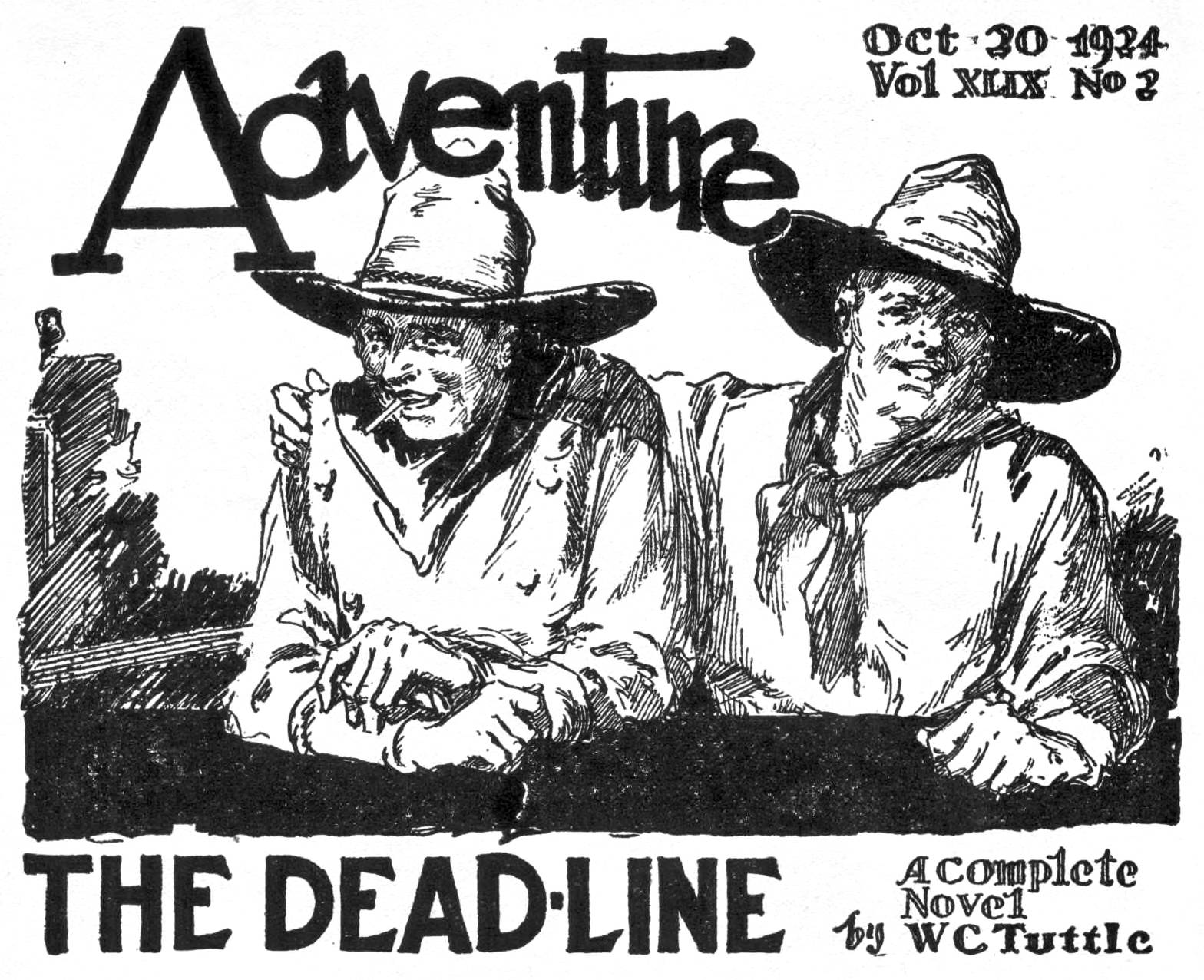
THE DEAD-LINE
Jack Hartwell’s place was not of sufficient importance in Lo Lo Valleyto be indicated by a brand name. It was a little four-room,rough-lumber and tar-paper shack, half buried in a clump ofcottonwoods on the bank of Slow Elk Creek.
The house had been built several years before by a man named Morgan,who had the mistaken idea that a nester might be welcome on the Lo Lorange. He had moved in quietly, built his shack, and—then the ridersfrom Marsh Hartwell’s Arrow outfit had seen his smoke.
Whether or not Marsh Hartwell legally owned the property made nodifference; he claimed it. And few men cared to dispute MarshHartwell. At any rate, it was proved that a nester was not welcome onthe Arrow.
It was an August afternoon. Only a slight breeze moved the dry leavesof the cottonwoods, and the air was resonant with the hum of insects.Molly Hartwell, Jack Hartwell’s wife, stood on the unshaded frontsteps of the house, looking down across the valley, which was hazywith the heat waves.
Mrs. Hartwell was possibly twenty years of age, tall, slender; adecided brunette of the Spanish type, although there was no Spanishblood in her ancestry. She was the kind of woman that women like tosay mean things about; and try to make themselves believe them.
The married men of the Lo Lo mentally compared her with theirwomen-folk; while the single men, most of them bashful, hard-ridingcowpunchers, avoided her, and hoped she’d be at the next dance.
Jack Hartwell did not wave at her as he rode in out of the hills anddismounted at the little corral beside the creek. He unsaddled, turnedhis sweat-marked sorrel into the corral and hung his saddle on thefence.
Jack Hartwell was a few years older than his wife; a thin-waisted,thin-faced young man with an unruly mop of blond hair and a frecklednose. His wide, blue eyes were troubled, as he squinted toward thehouse and kicked off his chaps.
He could not see his wife, but he knew that she was waiting for him,waiting for the news that he was bringing to her. After a few momentsof indecision he shrugged his shoulders and walked around the house toher.
She was sitting down in the doorway now, and he halted beside her, histhumbs hooked over the heavy cartridge belt around his waist.
“It’s hot,” he said wearily.
“Yes, it’s hot,” she said. “There hasn’t been much breeze today.”
“Water is gettin’ kinda low, Molly. Several of the springs ain’trunnin’ more than a trickle.”
“We need rain.”
Neither of them spoke now, as they looked down across the valley.Winged grasshoppers crackled about the duty yard, and several hornetsbuzzed up and down the side of the house, as if seeking an entrance.Finally the woman looked up at him and he moved uneasily.
“Yeah, it’s him—Eph King.”
There was bitterness in Jack Hartwell’s voice, which he did not try toconceal.
A flash of triumph came into the woman’s eyes, and she turned back toher contemplation of the hills. Her husband looked down at her,shaking his head slowly.
“Molly, it’s goin’ to mean —— in these hills.”
“Is it?”
She did not seem to mind.
“They’ve drawn a dead-line now,” he said slowly, “and there has beensome shootin’. They’ve sent for the outfits down in the south e